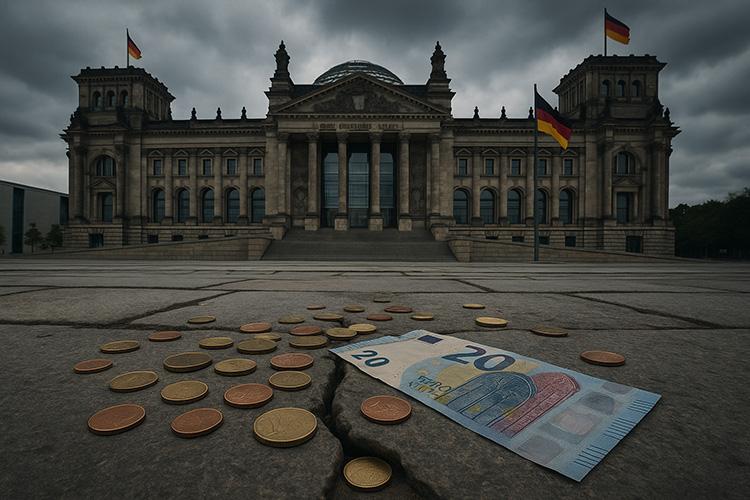2025-09-19
finance

Germany is heading into a period of painful fiscal adjustment after Chancellor Friedrich Merz acknowledged the country has been “living beyond our means for years.” His comments, delivered at a party conference in North Rhine-Westphalia, signal a shift in tone from Europe’s largest economy as it confronts swelling welfare obligations, municipal debts and a widening national budget gap. Merz pledged to launch a programme of municipal debt relief starting in January 2026, a move aimed at easing the pressure on cities and towns weighed down by legacy borrowing. North Rhine-Westphalia alone carries more than €55 billion in municipal liabilities. “We cannot continue as we have,” Merz told delegates, stressing that Germany’s welfare state in its current form is no longer financially sustainable. The Chancellor’s stark language was widely reported, though some coverage has pushed further than his words. While British media ran headlines declaring that Germany “faces ruin,” there is no verified record of Merz using such terminology. Wire services including Reuters quoted him directly on overspending and the need for reform, but not on impending collapse. Economists also caution that while Germany faces serious fiscal strain, its credit standing remains solid and it retains ample room to legislate budgets and borrow responsibly. The fiscal outlook is nevertheless daunting. According to the Financial Times, Germany faces a budget gap of around €170 billion by 2029, even after making use of special borrowing vehicles for defence and infrastructure. Finance ministry documents released in July confirm the scale of the challenge, warning that pensions and social security costs will keep rising sharply unless structural reforms are implemented. Berlin has already passed its 2025 budget, which departs from fiscal orthodoxy by expanding public investment through special funds, partly to bolster economic growth and meet NATO defence spending commitments. The move demonstrates capacity to act, but it also highlights the tension between investing in future competitiveness and consolidating public finances. Merz’s intervention reflects both political and economic pressures. His CDU-led government must steer between voters anxious about welfare security and business leaders demanding stability and competitiveness. Economists are split: some argue Germany must ease its constitutional “debt brake” to enable more investment, while others warn that loosening fiscal rules risks undermining the discipline that has long anchored the country’s economic credibility. The Chancellor’s warning that Germany has lived beyond its means is an unusually blunt admission from a leader of Europe’s economic powerhouse. But the suggestion that the country is on the brink of ruin is overstated. Germany’s challenge is not imminent collapse but the longer-term sustainability of its social and fiscal model. Demographics, welfare costs and global competition will force difficult choices in the years ahead. For now, Berlin is signalling that it will tighten the belt where necessary while trying to preserve its ability to invest in the economy of tomorrow. Whether that balance can be struck without undermining growth—or shaking Germany’s political consensus—will be the defining question of Merz’s chancellorship.

